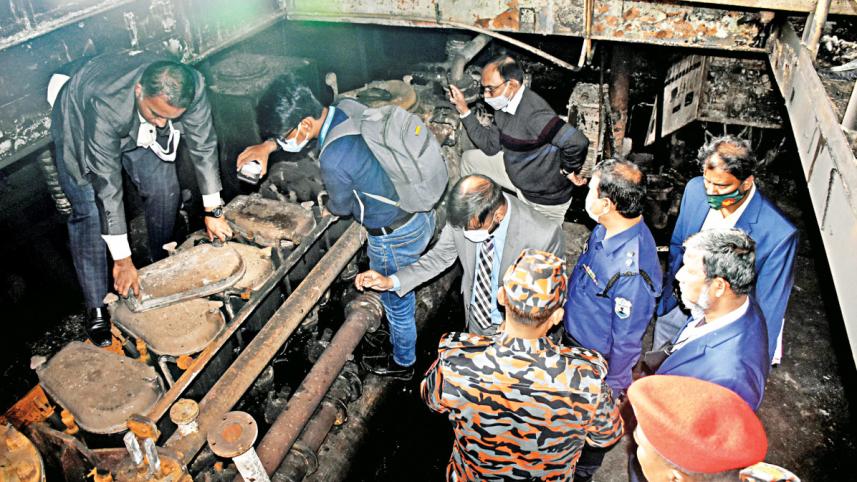Accidents caused by negligence is a criminal offence

Accidents, they say, occur when one gambles with safety, cuts corners with rules and regulations, and discards laid down procedures for the sake of reaching the destination in a rush. The recent fire in MV Abhijan has exposed all these follies that the surface transport sector is plagued with. We wonder at the utter apathy of the authorities to address the problem in a forthright and urgent manner, so that tragedies like the one that struck MV Abhijan are not replayed.
We repeat that the 41 lives lost in the fire was not an "accident," but murder. We do not want to recount the list of violations which border on criminality that the owner of said vessel indulged in to refit it with more powerful engines than the approved ones, except to say that fitting unapproved engines was not the only violation. The crews were untrained, and fire extinguishers were there but nobody knew how to use them. Such violations are not exceptions but the rule, exposed only after a disaster strikes. And this state of affairs is pervasive across the entire gamut of the surface transport sector—be it water, rail or road. And taking the case of the water transport sector, the litany of recent accidents in this sector should put any administration to shame, and drive them to wake up to a problem that is responsible for deaths and injuries that are easily avoidable.
We often hear a common refrain—"lack of manpower"—whenever the oversight authorities' lack of action is pointed out. The most surprising matter is that even the BIWTC vessels are operating without fitness certificates. This horrendous fact was exposed after the ferry Shah Amanat capsized in Paturia Ghat in October: the ferry had long become obsolescent, its economic life having expired. The inland water transport authorities should put their house in order first.
The regrettable matter is that, after every such tragedy—and they are pathetically frequent—the authorities, as usual, form committees, which recommend certain actions and then nothing more happens. The probe body set up after the MV Mayur accident on June 29, 2020, had made 16 recommendations, including providing proper training to launch masters and drivers, and installing modern technology in launches to prevent such accidents in future. The recent disaster suggests that nothing of the sort was done. The question is: why?
The primary reasons why the surface transport sector remains the most dangerous and vulnerable are that the recommendations are not religiously followed, the errant persons are not held to account, and those who are responsible to exercise oversight are not held accountable for the abdication of their responsibilities. Unless these points are addressed, passengers' lives on road, rail and waterways will continue to be at risk.



 For all latest news, follow The Daily Star's Google News channel.
For all latest news, follow The Daily Star's Google News channel.
Comments